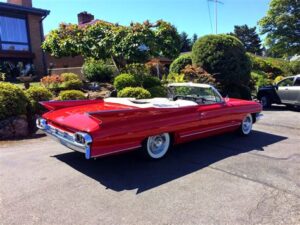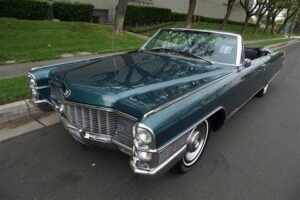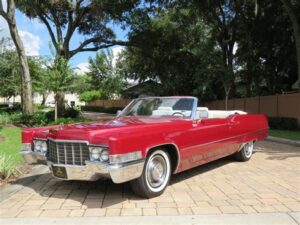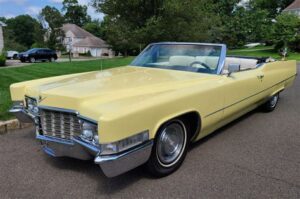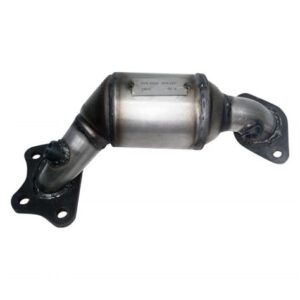Discover the significance, effects of faults, and maintenance tips for the Cadillac Converter in Ford F150s, plus how to select the right one.When it comes to optimizing your Ford F150’s performance and emissions, understanding the role of the Cadillac converter is essential. Also known as the catalytic converter, this pivotal component plays a crucial part in transforming harmful gases from your truck’s engine into less harmful emissions before they exit the exhaust system. As we delve into the importance of the Cadillac converter for your Ford F150, we’ll also explore the consequences of a faulty unit and how to choose the right replacement for your vehicle. Maintenance tips will ensure that your converter operates efficiently for years to come, keeping your truck running smoothly while meeting environmental standards. Join us as we uncover everything you need to know about Cadillac converters for the Ford F150 to enhance both performance and sustainability.
What is a Cadillac Converter?
Cadillac converters are essential components of a vehicle’s exhaust system. They play a crucial role in reducing harmful emissions produced by the engine. By converting toxic gases such as carbon monoxide, hydrocarbons, and nitrogen oxides into less harmful substances, they help maintain cleaner air quality.
A Cadillac converter works through a chemical reaction facilitated by catalysts, typically metals like platinum, palladium, and rhodium. These metals facilitate the conversion of the harmful exhaust gases into carbon dioxide and water vapor, which are significantly less harmful to the environment.
In summary, the Cadillac converter is a vital part of any vehicle, including the Ford F150, ensuring that it meets environmental standards while also contributing to improved engine performance and fuel efficiency.
Importance of Cadillac Converter for Ford F150
The Cadillac Converter plays a crucial role in the overall functioning of your Ford F150. It serves to reduce harmful emissions, ensuring that the vehicle meets environmental standards while also enhancing its performance. By converting toxic gases generated from the engine into less harmful substances, the Cadillac Converter becomes an integral component of the vehicle’s exhaust system.
One of the primary benefits of having a functional Cadillac Converter is improved fuel efficiency. When the converter operates efficiently, it helps the engine breathe properly, thereby optimizing fuel consumption. This not only saves you money at the pump but also contributes to reduced carbon footprint, which is beneficial for the environment.
Moreover, a malfunctioning Cadillac Converter can lead to a range of issues, including decreased engine performance and annoying check engine light alerts. Therefore, understanding the importance of Cadillac Converter for your Ford F150 isn’t merely a matter of compliance but also about maintaining the vehicle’s health and performance over time.
Effects of a Faulty Cadillac Converter
The Cadillac Converter plays a crucial role in the emissions system of your Ford F150. When it becomes faulty, it can have a series of negative effects on both the vehicle’s performance and the environment. Here, we will explore some of the most significant impacts caused by a malfunctioning Cadillac Converter.
One of the primary effects of a faulty Cadillac Converter is a noticeable decrease in engine performance. Drivers may experience symptoms such as reduced acceleration, hesitation, or stumbling when trying to accelerate. This decline in power is often accompanied by an increase in fuel consumption, as the engine struggles to compensate for the restricted exhaust flow.
Additionally, a malfunctioning Cadillac Converter can lead to the release of harmful emissions into the atmosphere. The converter’s main purpose is to reduce toxic gases produced by the engine, including nitrogen oxides and hydrocarbons. When it fails, not only does this impact the environment negatively, but it may also cause your vehicle to fail emissions testing, resulting in legal and financial repercussions.
Finally, a faulty Cadillac Converter can create a detrimental feedback loop within your Ford F150’s exhaust system. This can lead to further damages, such as overheating or even engine failure, as the problem intensifies. Therefore, addressing these issues promptly is crucial for maintaining both the performance and longevity of your vehicle.
Selecting the Right Cadillac Converter for Ford F150
When it comes to optimizing Ford F150 performance, selecting the right catalytic converter is essential. The catalytic converter plays a vital role in reducing harmful emissions and ensuring compliance with environmental regulations. However, choosing the appropriate catalytic converter requires careful consideration of various factors.
First and foremost, ensure that the selected catalytic converter fits your Ford F150 model and year. Different models often have unique exhaust systems, which necessitates the need for specific converter types. To facilitate this process, here is a table outlining compatibility of common F150 models:
| Ford F150 Model | Year | Compatible Catalytic Converter |
|---|---|---|
| F150 XL | 2015-2020 | Model XYZ123 |
| F150 XLT | 2018-2021 | Model ABC456 |
| F150 Lariat | 2013-2019 | Model DEF789 |
In addition to compatibility, consider the performance specifications of the catalyst. Some converters are designed to enhance engine horsepower and torque, which could be beneficial for heavy-duty towing or off-road activities. Review the specifications provided by manufacturers and opt for a unit that balances emissions control and engine performance.
Lastly, remember to check for warranties and certifications when purchasing a catalytic converter. Opting for certified products ensures you are making an environmentally responsible choice while safeguarding your vehicle’s performance. Taking these points into account will enable you to choose the best catalytic converter for your Ford F150, ensuring longevity and efficiency.
Proper Maintenance of Cadillac Converter
Maintaining your Cadillac Converter is crucial for ensuring optimal performance and extending the lifespan of your Ford F150. A well-maintained converter aids in reducing harmful emissions, thereby contributing to a cleaner environment. Regular maintenance also helps in identifying potential issues before they escalate into costly repairs.
Here are some essential tips for the proper maintenance of your Cadillac Converter:
- Regular Inspections: Conduct routine inspections of your Cadillac Converter during major service intervals. Look for any signs of physical damage, rust, or corrosion.
- Monitor Performance: Keep an eye on your vehicle’s performance. Any sudden changes, such as decreased fuel efficiency or unusual engine noises, may indicate issues with the converter.
- Use Quality Fuel: Using high-quality fuel can minimize the buildup of deposits inside the converter, which can hinder its functionality.
Additionally, if you notice a decrease in your Ford F150’s power or an increase in exhaust emissions, it is advisable to have your Cadillac Converter checked immediately. Early diagnosis can save you both time and money in the long run.
Frequently Asked Questions
What is a catalytic converter and what does it do in a Ford F150?
A catalytic converter is an emissions control device that converts harmful gases produced during combustion into less harmful emissions, helping to reduce the vehicle’s environmental impact.
How often should I replace the catalytic converter in my Ford F150?
Typically, a catalytic converter can last anywhere from 70,000 to 100,000 miles, but it is essential to check for any symptoms of failure early, such as decreased fuel efficiency or a noticeable smell.
What are the signs of a failing catalytic converter in a Ford F150?
Signs of a failing catalytic converter include reduced engine performance, poor acceleration, a check engine light, and unusual noises from the exhaust system.
Can I drive my Ford F150 with a bad catalytic converter?
It is not advisable to drive with a bad catalytic converter as it can lead to further damage to the exhaust system and engine, as well as increased emissions.
What are the costs associated with replacing a catalytic converter in a Ford F150?
The cost to replace a catalytic converter can vary greatly, typically ranging from $1,000 to $2,500, depending on the make and model, labor costs, and whether aftermarket or OEM parts are used.
Are there any aftermarket catalytic converters available for Ford F150?
Yes, there are many aftermarket catalytic converters available for the Ford F150, but it’s crucial to choose ones that comply with local emissions standards and regulations.
How can I maintain my catalytic converter to ensure its longevity?
Regular maintenance of your Ford F150, including timely oil changes, using fuel with the correct octane rating, and monitoring for engine problems, can help maintain the longevity of your catalytic converter.
